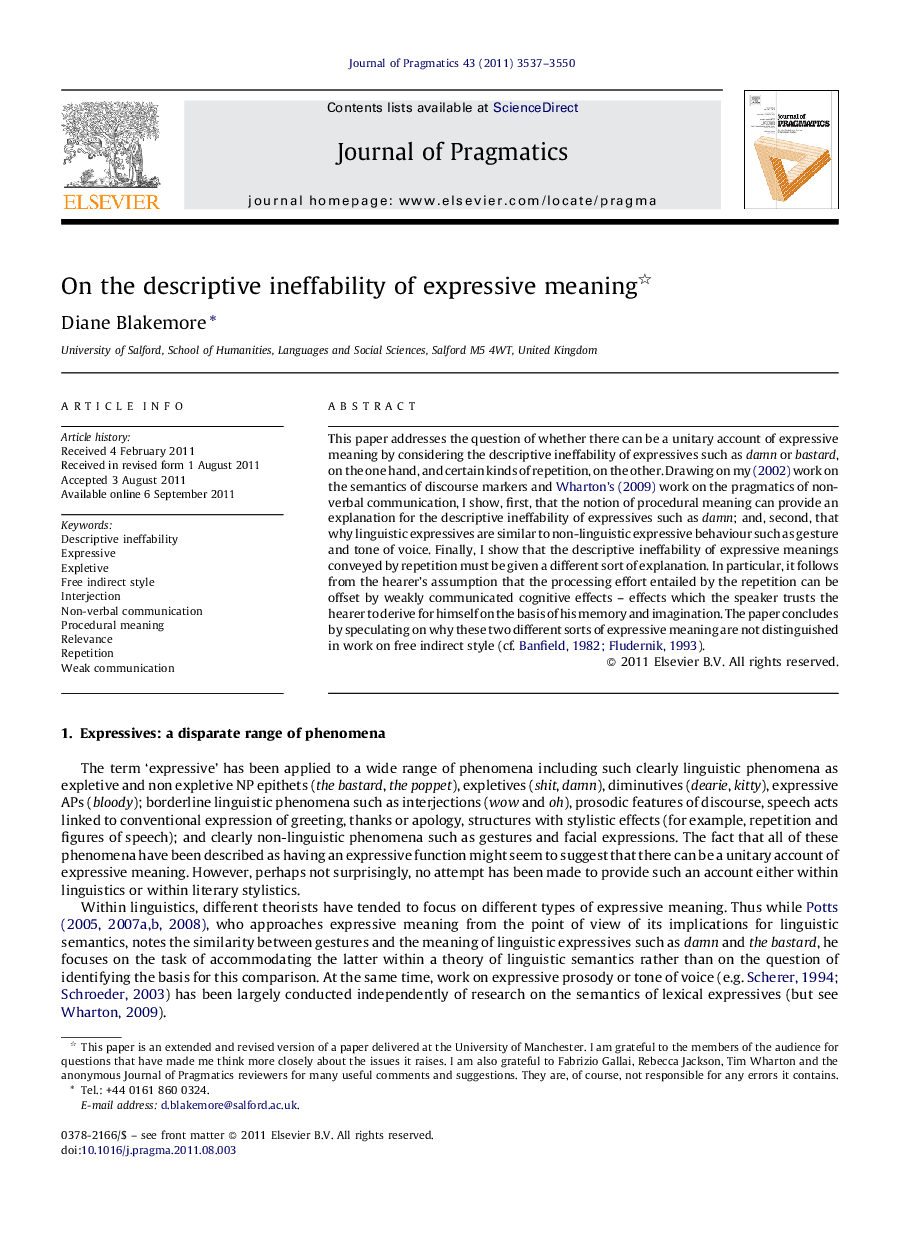| Article ID | Journal | Published Year | Pages | File Type |
|---|---|---|---|---|
| 933116 | Journal of Pragmatics | 2011 | 14 Pages |
This paper addresses the question of whether there can be a unitary account of expressive meaning by considering the descriptive ineffability of expressives such as damn or bastard, on the one hand, and certain kinds of repetition, on the other. Drawing on my (2002), work on the semantics of discourse markers and Wharton's (2009) work on the pragmatics of non-verbal communication, I show, first, that the notion of procedural meaning can provide an explanation for the descriptive ineffability of expressives such as damn; and, second, that why linguistic expressives are similar to non-linguistic expressive behaviour such as gesture and tone of voice. Finally, I show that the descriptive ineffability of expressive meanings conveyed by repetition must be given a different sort of explanation. In particular, it follows from the hearer's assumption that the processing effort entailed by the repetition can be offset by weakly communicated cognitive effects – effects which the speaker trusts the hearer to derive for himself on the basis of his memory and imagination. The paper concludes by speculating on why these two different sorts of expressive meaning are not distinguished in work on free indirect style (cf. Banfield, 1982; Fludernik, 1993).
